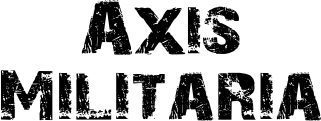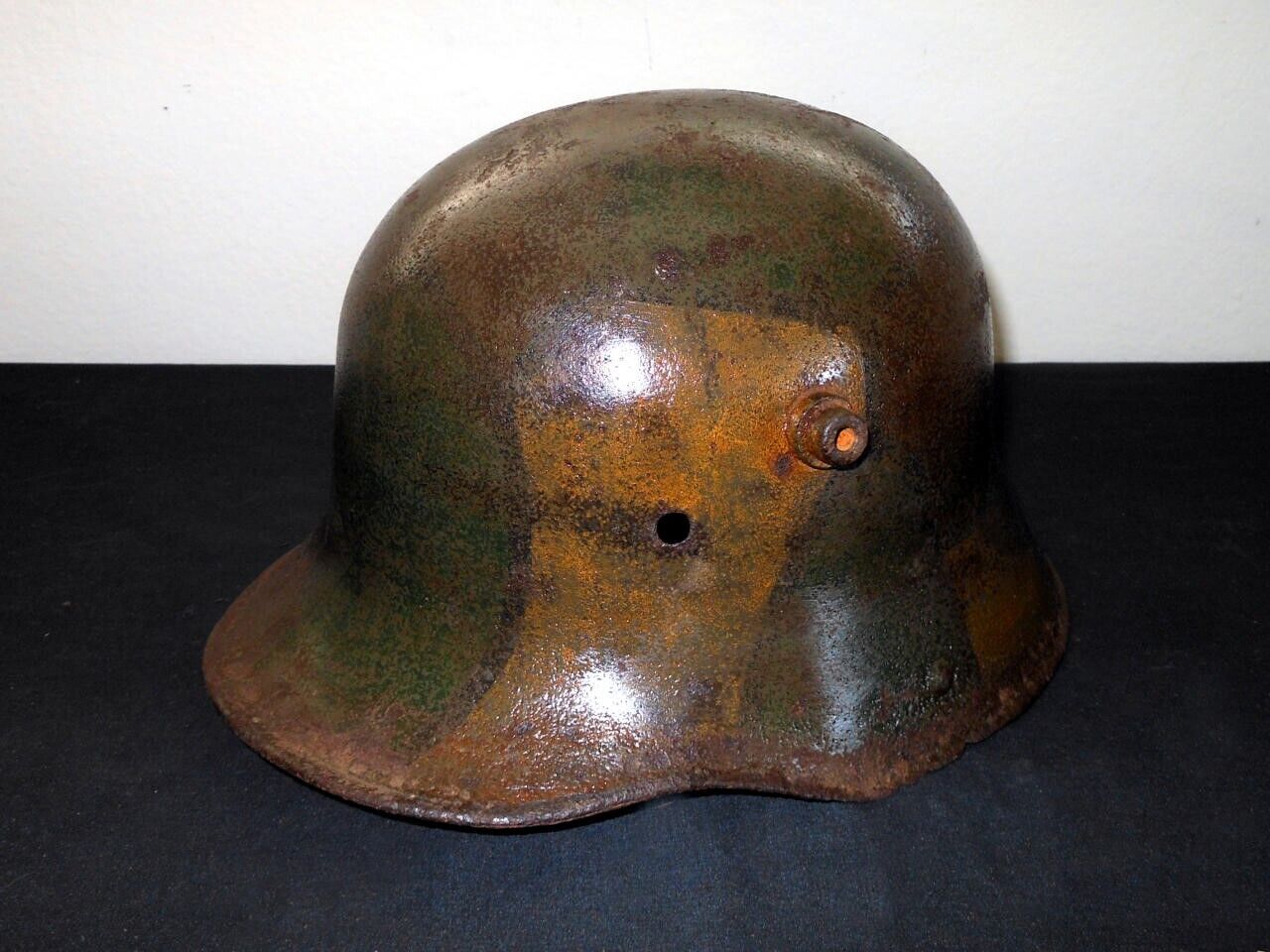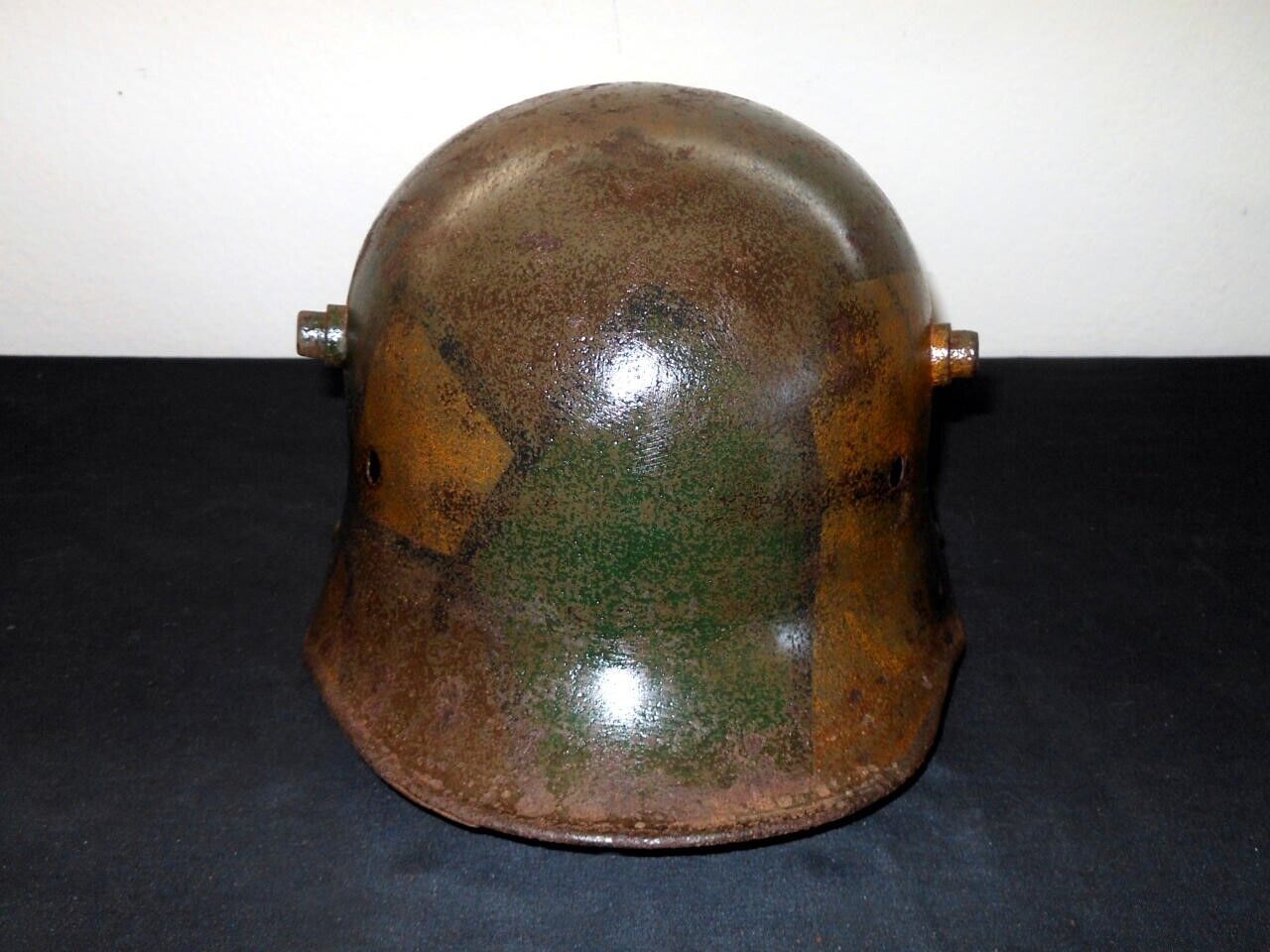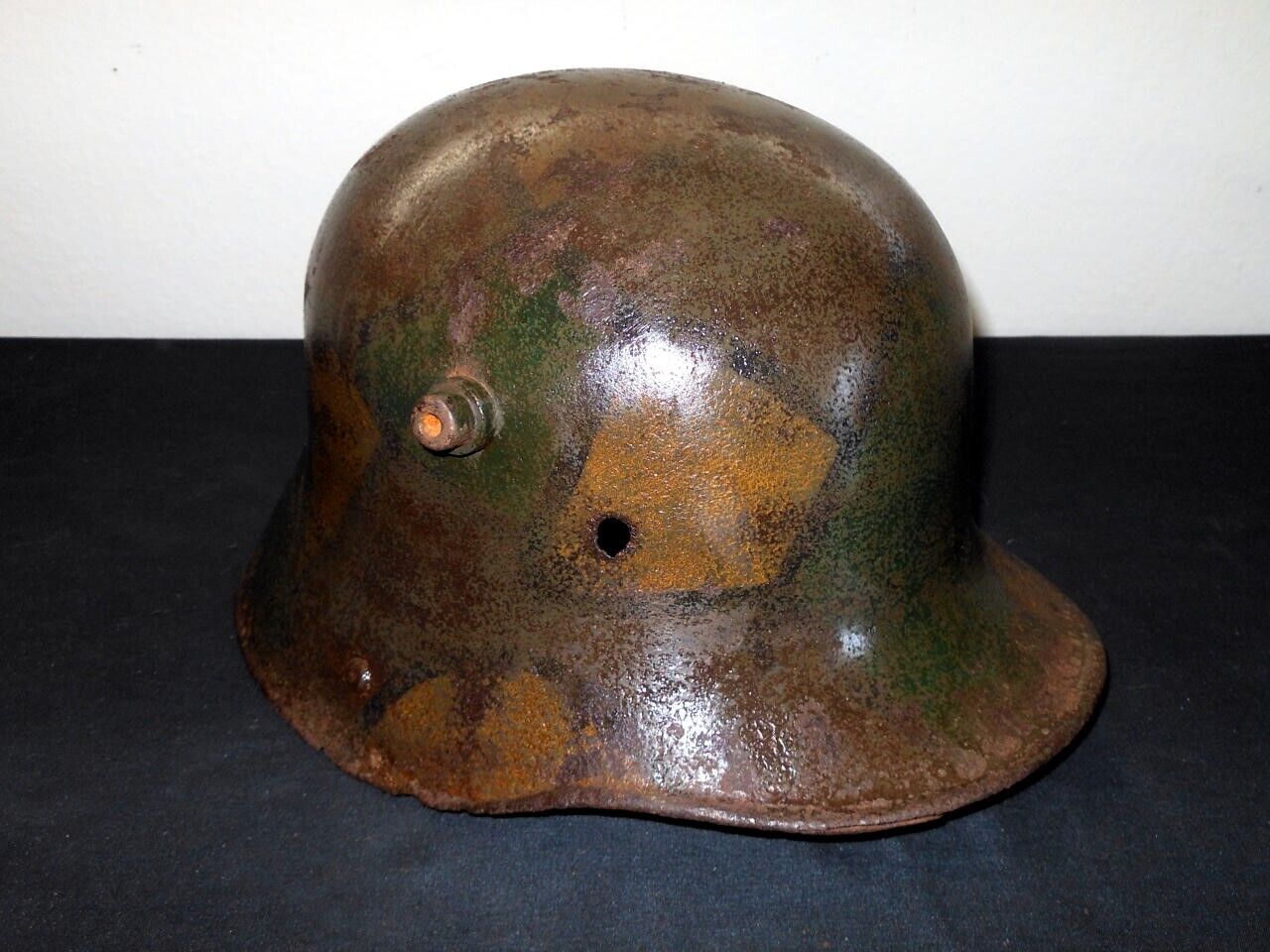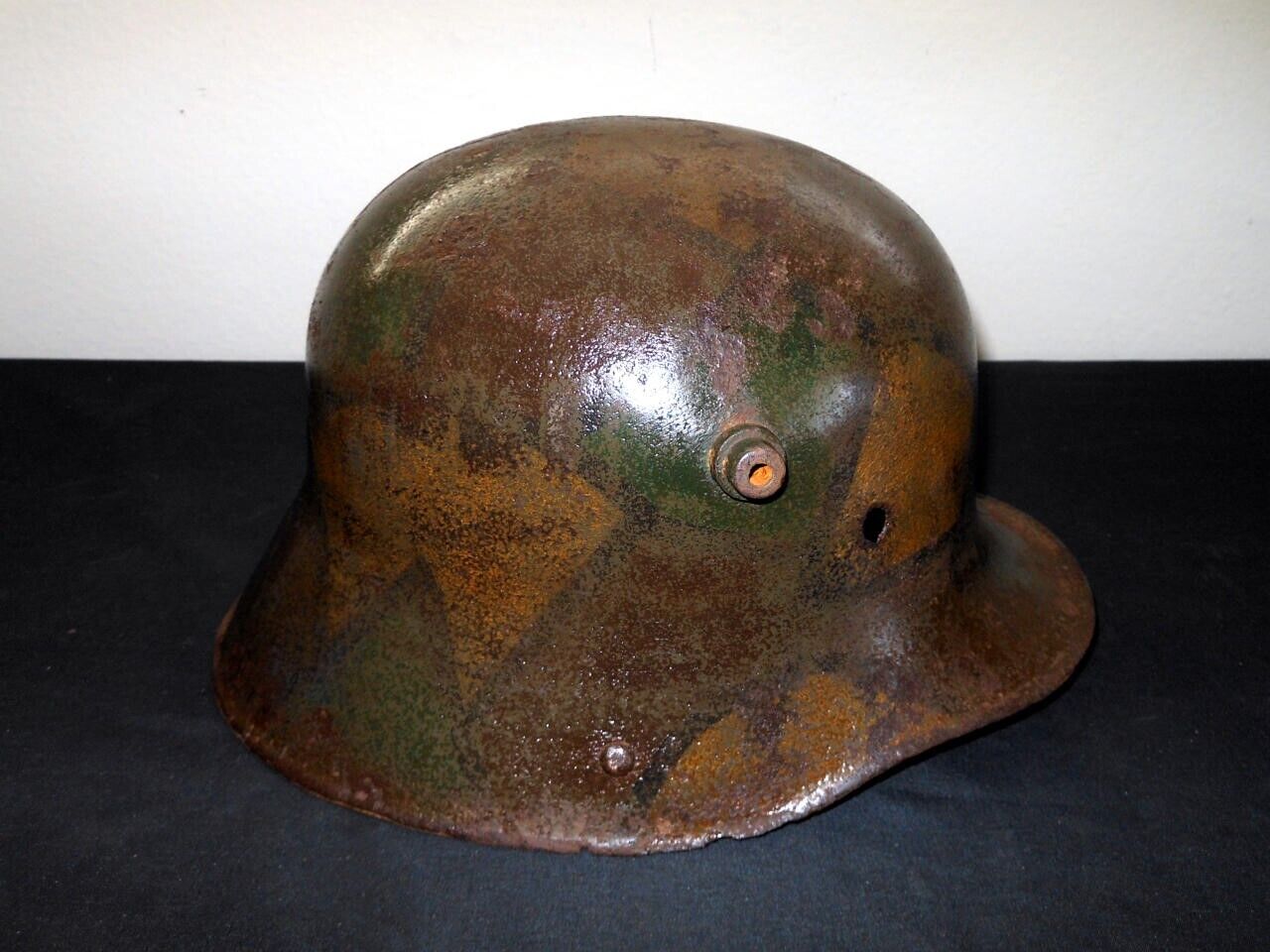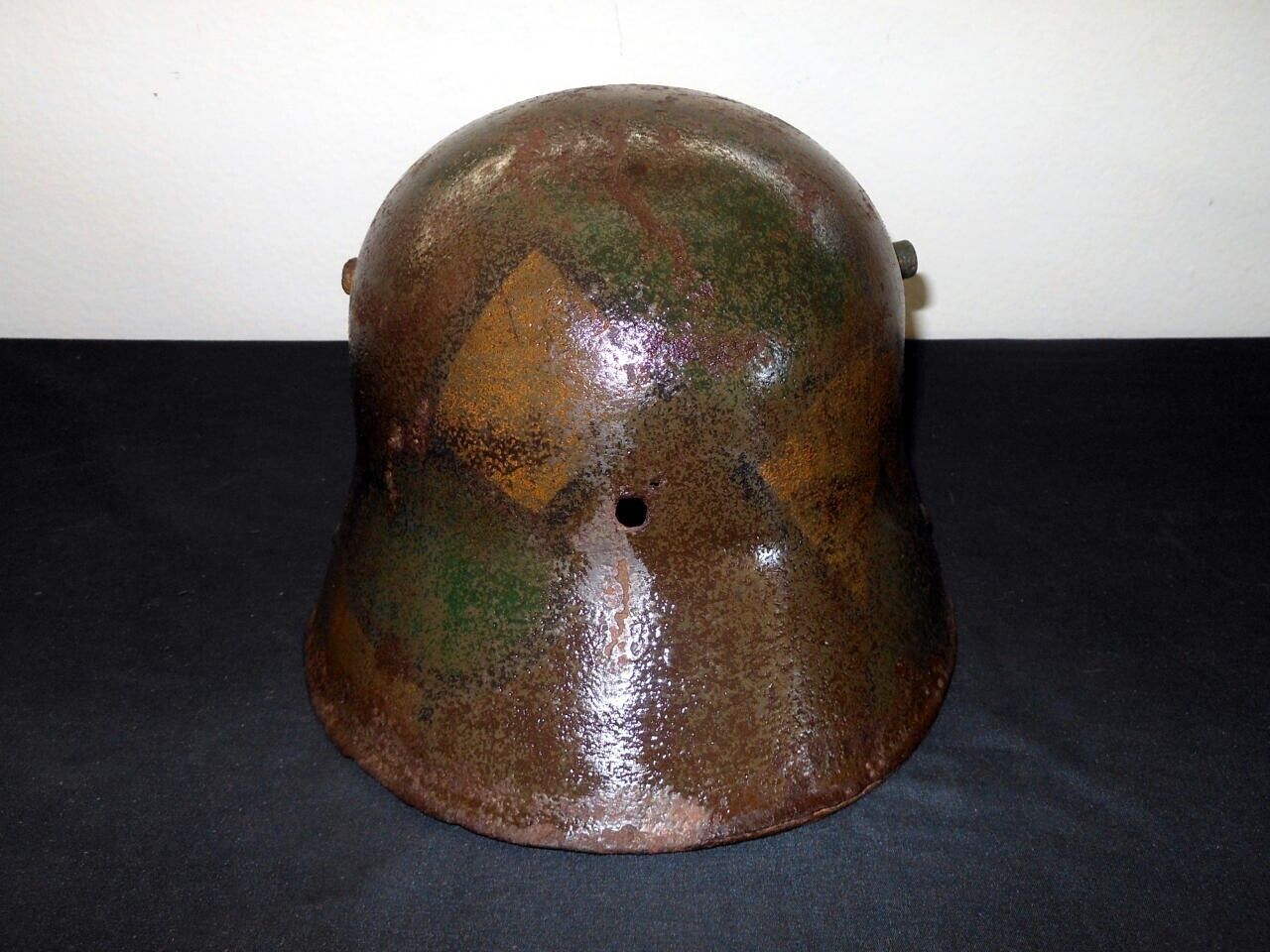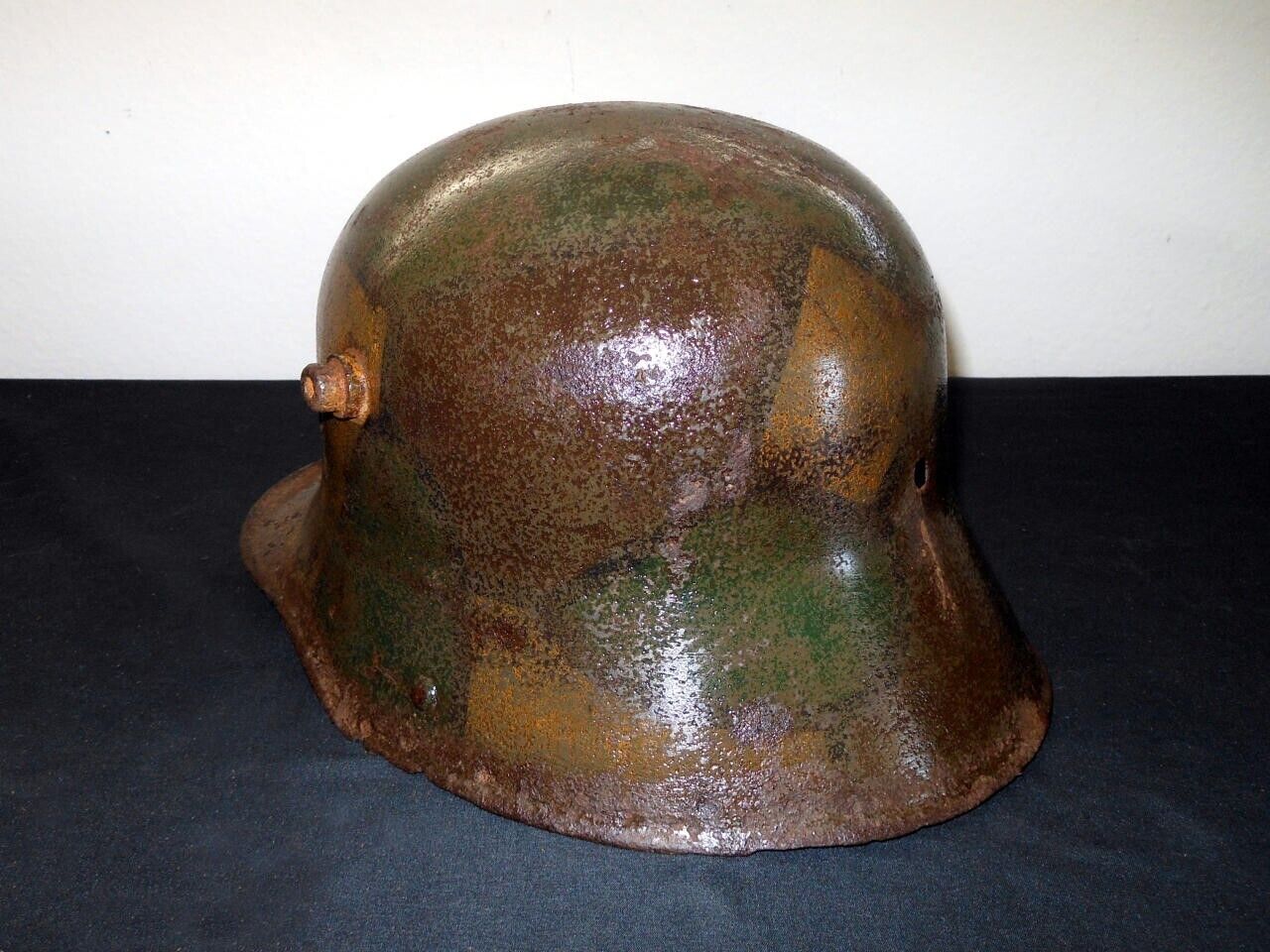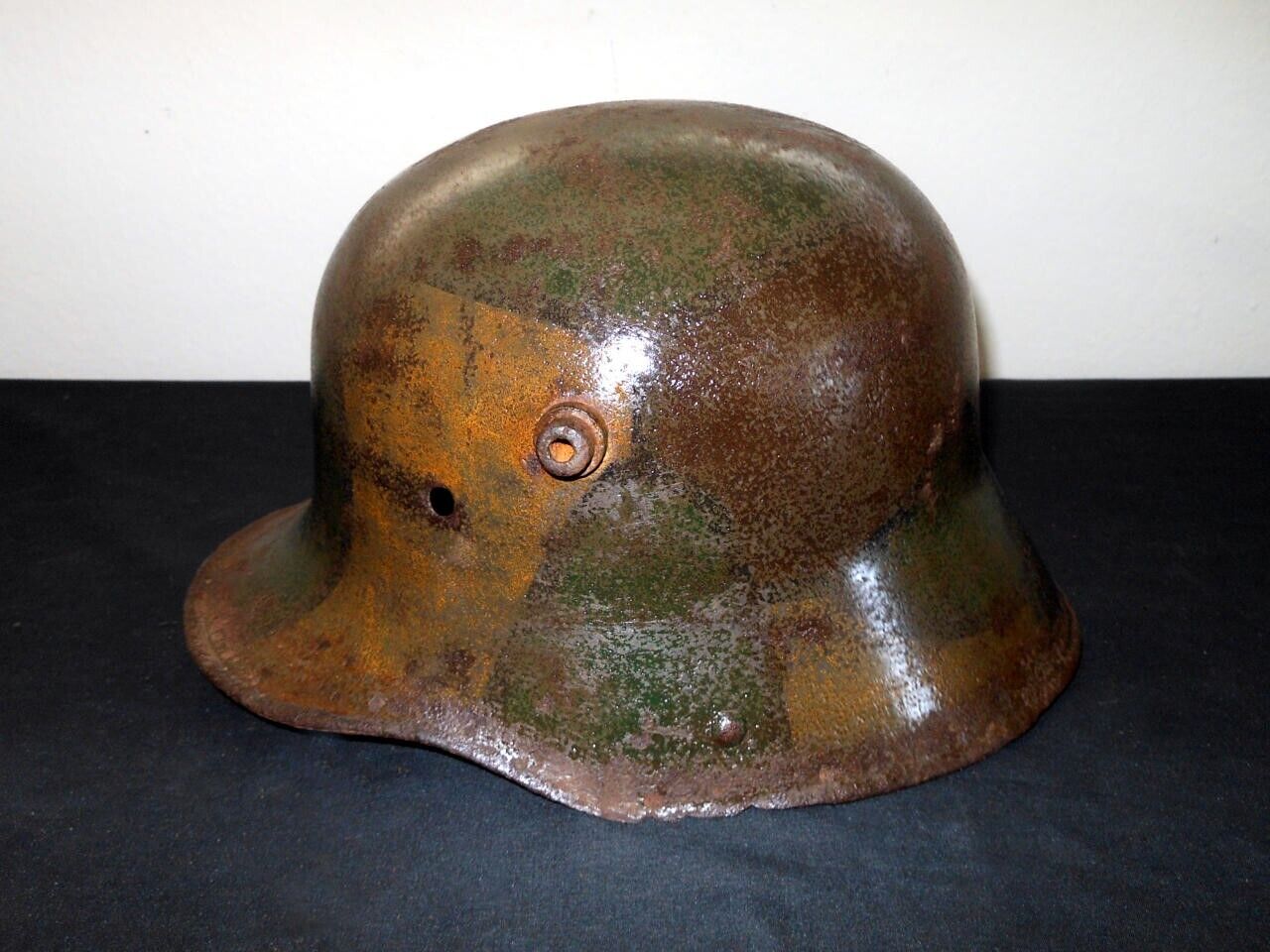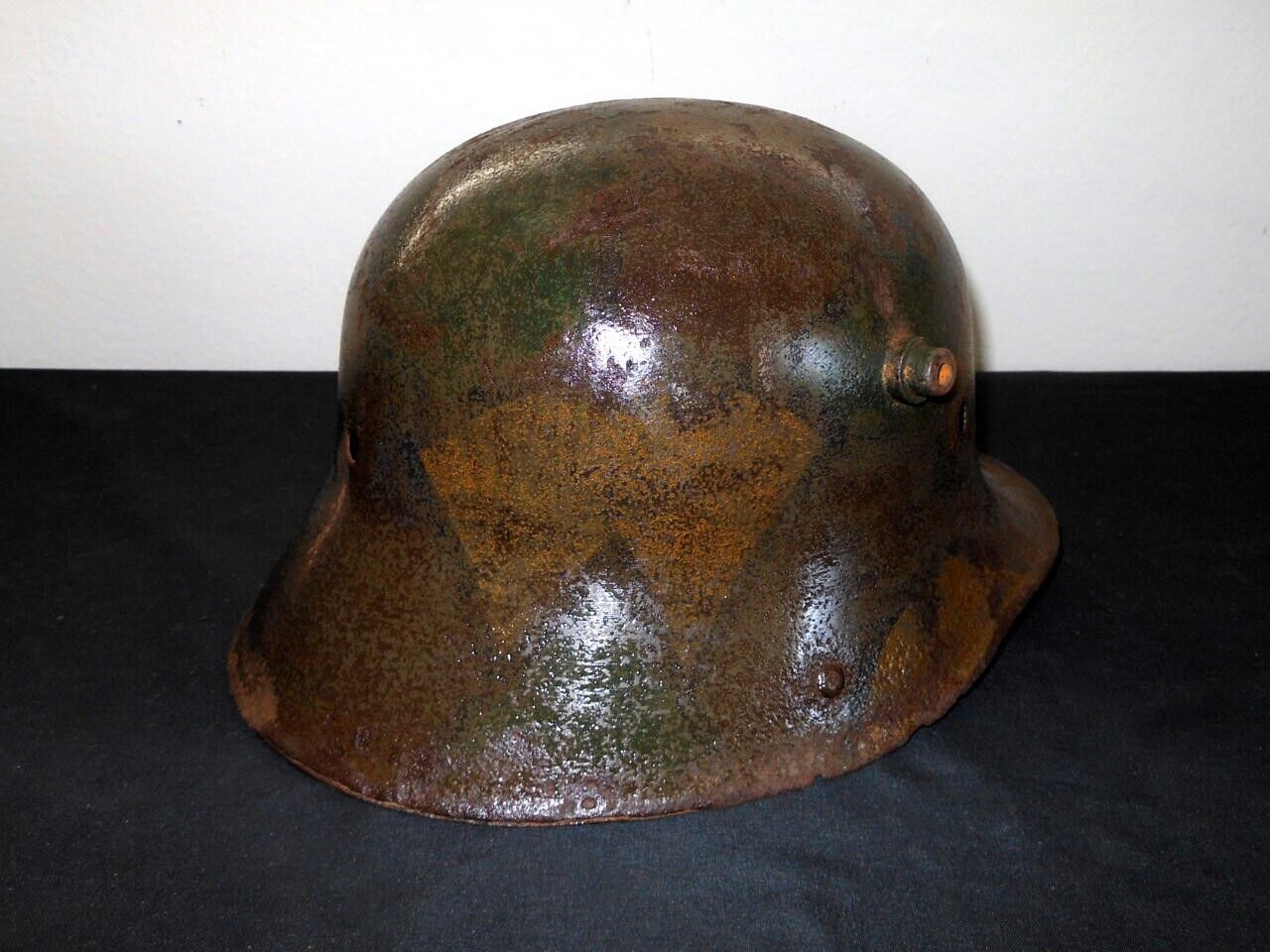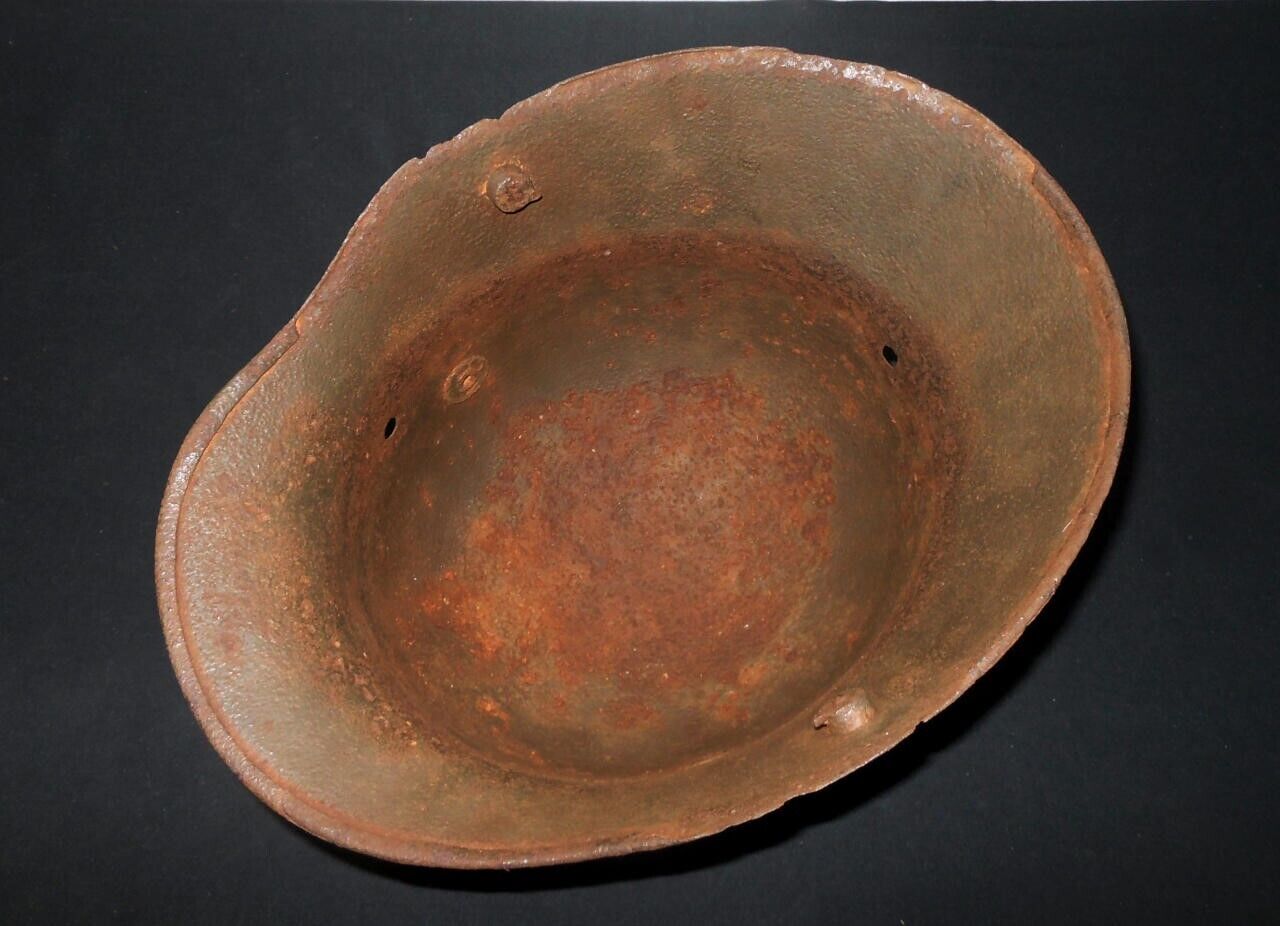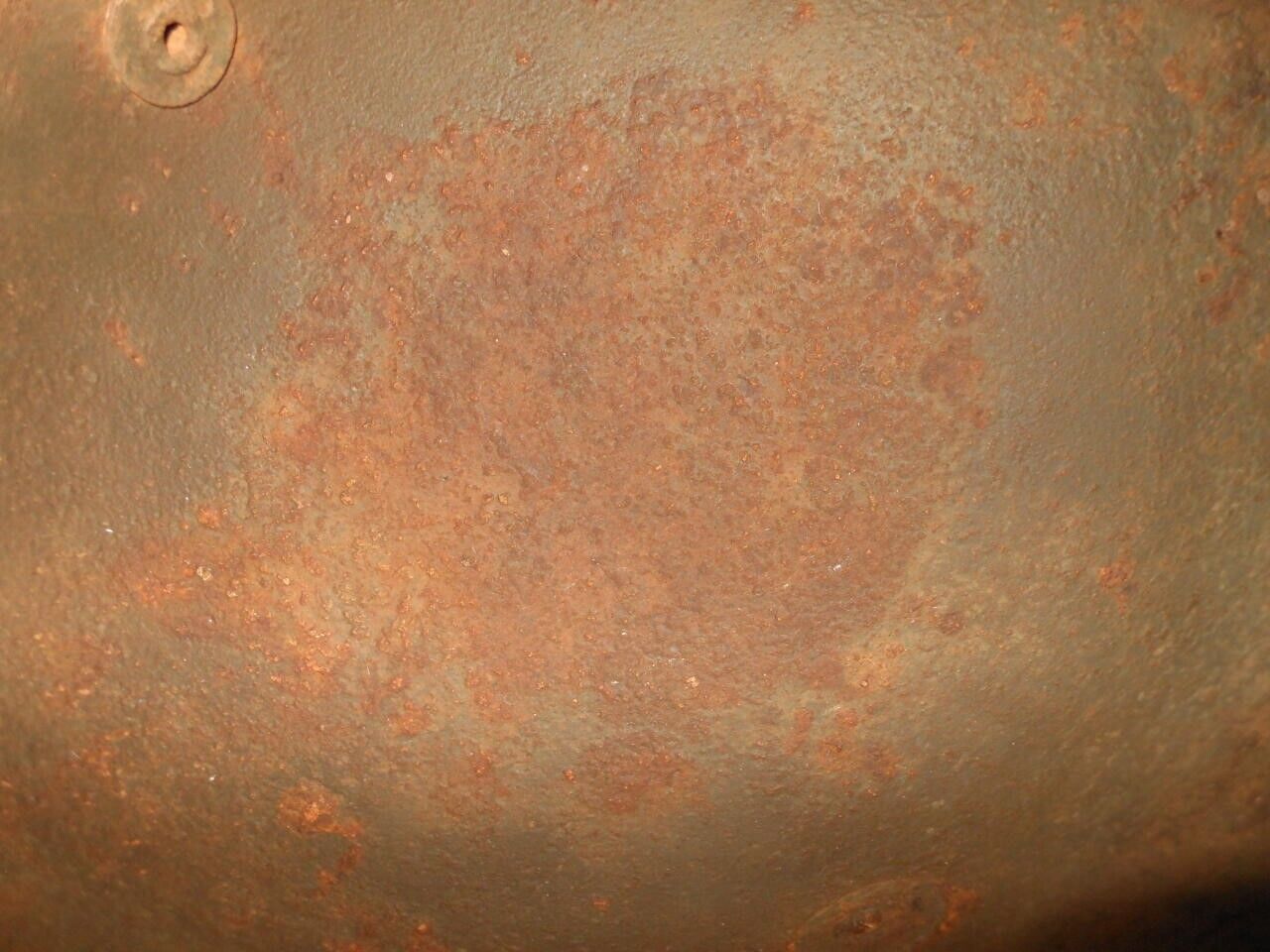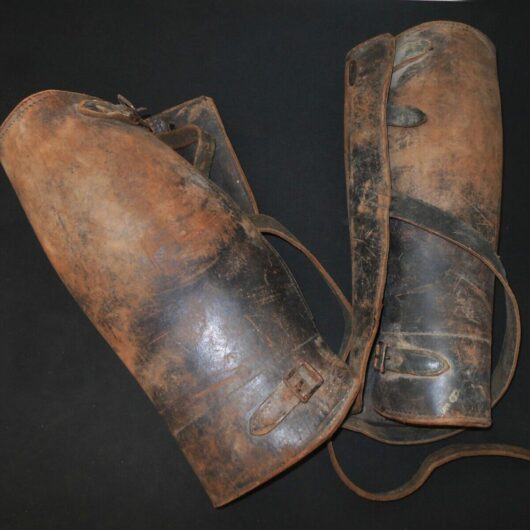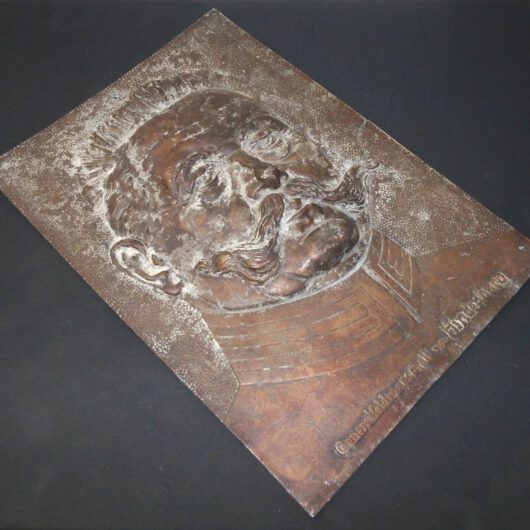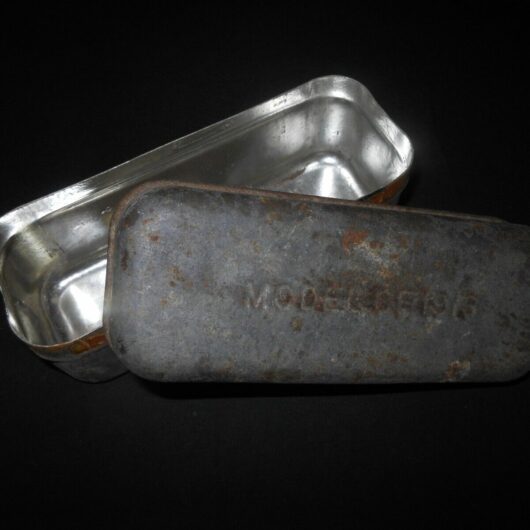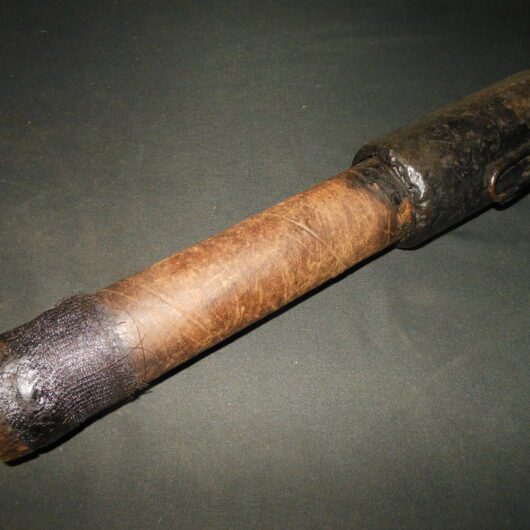Description
You are bidding on a SUPERB relic example of a 100% ORIGINAL WW1 Imperial German Army M1916 / M1917 Camouflaged Combat Helmet! Sadly, I do not have any history with this one.
The first modern steel helmets were introduced by the French army in early 1915. The German army began tests for their own steel helmet at the Kummersdorf Proving Grounds in November, and in the field in December 1915, experimenting with both captured French and British helmets. An acceptable pattern was developed and approved and production began at Eisen-und Hüttenwerke, AG Thale/Harz, in the spring of 1916.
The M1916 design had side-mounted horn-like ventilator lugs which were intended to be support for an additional steel brow plate or Stirnpanzer, which only ever saw limited use by snipers and trench raiding parties, as it was too heavy for general use.
The shell came in different sizes, from 60 to 68, with some size 70s reported. Helmet weight varied from 0.98 kg to 1.4 kg, depending on shell size. The suspension, or liner, consisted of a headband with three segmented leather pouches, each holding padding materials, and leather or fabric cords could be adjusted to provide a comfortable fit. The one-piece leather chin strap was attached to the shell by M1891 chinstrap lugs, the same kind used in the Pickelhaube helmet.
But the helmet was not without its flaws. The ventilator horns often let cold air in during the winter, requiring the wearer to block the vents with mud or fabric. The large, flared skirt tended to make it difficult for soldiers to hear, distorting surrounding sounds and creating an echo when the wearer spoke.
Originally painted Feldgrau (field grey), the Stahlhelm was often camouflaged by troops in the field using mud, foliage, cloth covers, and paint. Official issue cloth covers in white and grey appeared in late 1916 and early 1917. Camouflage paint was not formally introduced until July 1918, when German Army Order II, No 91 366, signed by General Erich Ludendorff on 7 July 1918, outlined official standards for helmet camouflage. The order stipulated that helmets should be painted in several colors, separated by a finger-wide black line. The colors should be relevant to the season, such as using green, brown and ochre in summer.
After the effectiveness of the M1916 design was validated during the 1916 campaigns, incremental improvements were subsequently made. The M1917 version saw improvements to the liner, but was otherwise identical to the original design.
Made of stamped steel, this M1916/1 Combat Helmet is in EXCELLENT relic condition! Some marks, corrosion, and wear throughout, but still retains MUCH of the original camouflage paint and finish! Paints consists of Tan, Brown, Green, and Black. No markings are legible, due to the pitting. Would a PERFECT item for any collection or display!** Note that the sheen on the helmet was due to a light oiling/cleaning I did just before I took the listing photos **

Powered by SixBit’s eCommerce Solution
